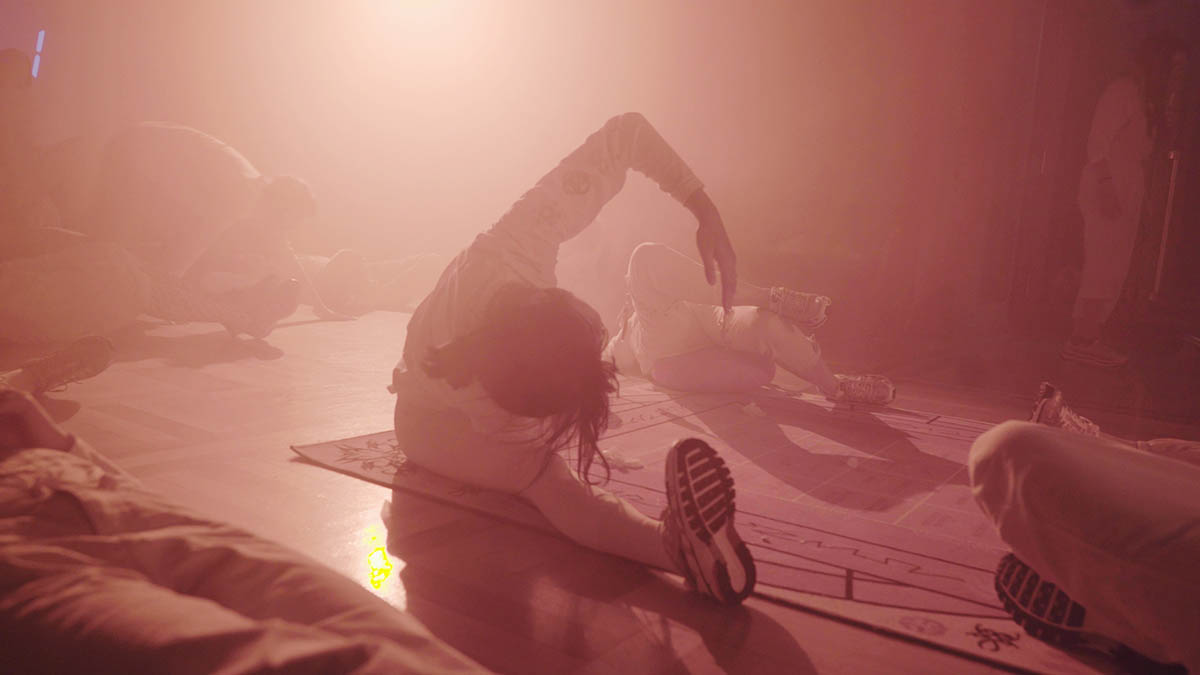
Erka Shalari: How did Decentralized Autonomous Organisation (DAO) emerge?
Penny Rafferty: I started working as a writer and theorist in 2017, situated in dialogue with technology, arts, and political activism and around that time, I found myself around a group of very inspiring cultural workers. Their names were Catrin Mayer, Chloe Stead, Maurin Dietrich, and Kate Brown. Throughout a number of public and private moments, we were constantly negotiating and examining the modes and mechanics that the art world was operating under the specific locus of Berlin. This was a moment in Berlin when we were seeing rapid gentrification. There was also the rise of speaking of who and who was not being funded – gender, age, materiality etc.
This really led me into marrying these conversations with decentralized autonomous organizational thinking. Now, what I was recognizing within these conversations was the fact that many artists actually break their careers in self-organized, self-founded, peer-aided ecologies that these large institutions/ resource holders who cream off the top very very rarely actually refill with resources and support, even through they hold their artists in the most delicate moments of their career.
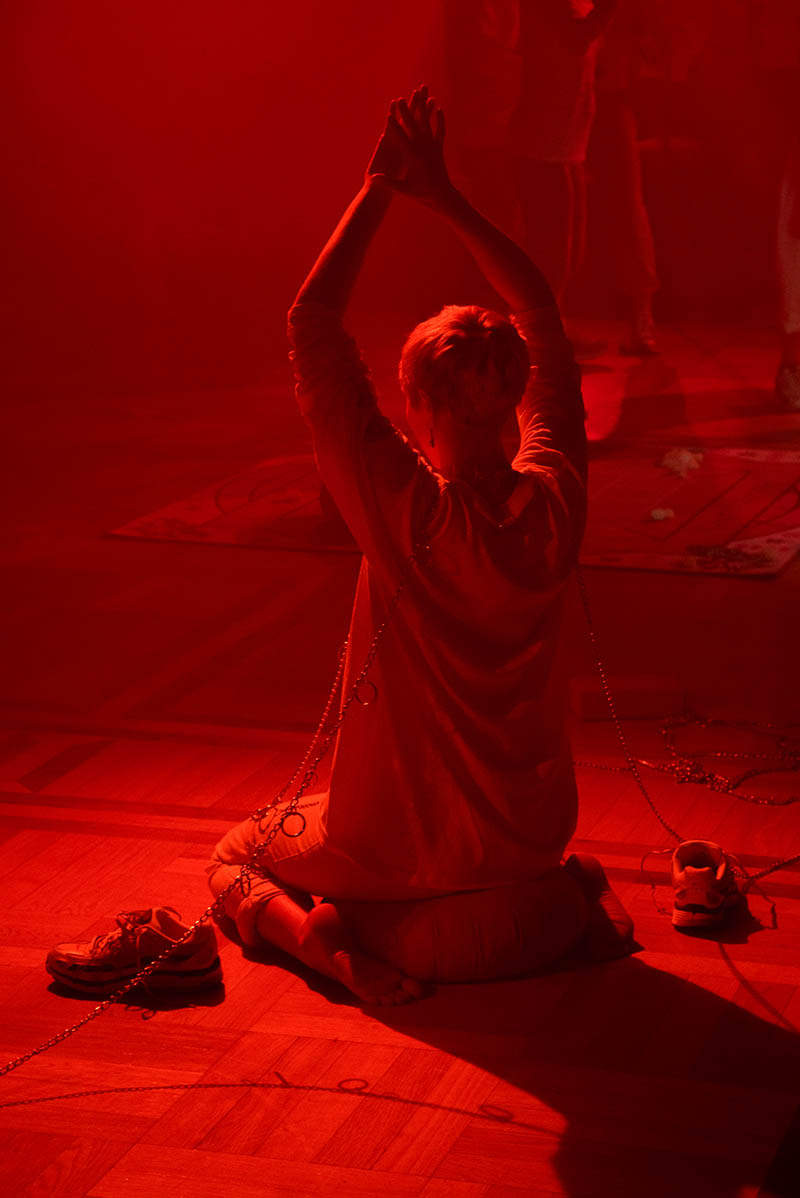
And without this foundational base, I don’t think we would have many of the artists that we have today. And so the way the Black Swan was proposed was to recognize the huge contribution that this foundational basis offered not only in the artist’s career, but also cultural workers, curators, writers, genres, theorists and so forth, and in fact to support this local ecosystem with the resources that they need in order to continue to stake out the next generation of artists.
In recent years, you have seen in the arts that a more a neo-liberal survival mechanism has found its way into the arts through – individual patron accounts, crowdfunding etc. Not that this is bad to have these moments of kind of accessibility to an artist’s practice, but artists, among all the things that they have to do today as professional workers, should also not become fundraisers for their work too.
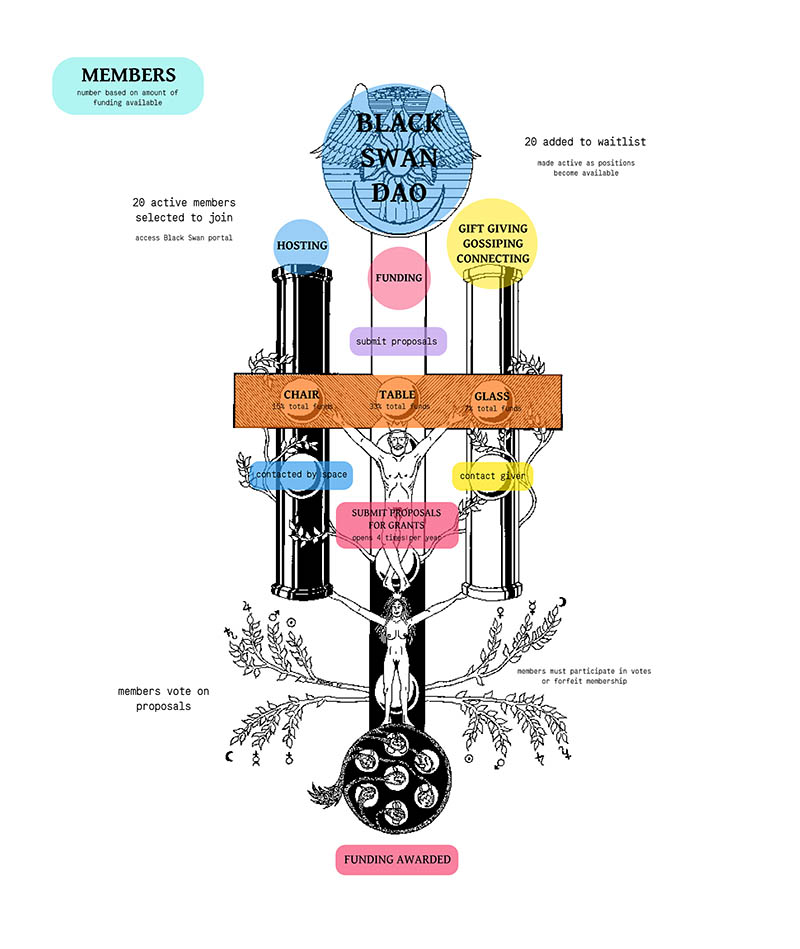
Ph: Black Swan Diagram – Members – 01 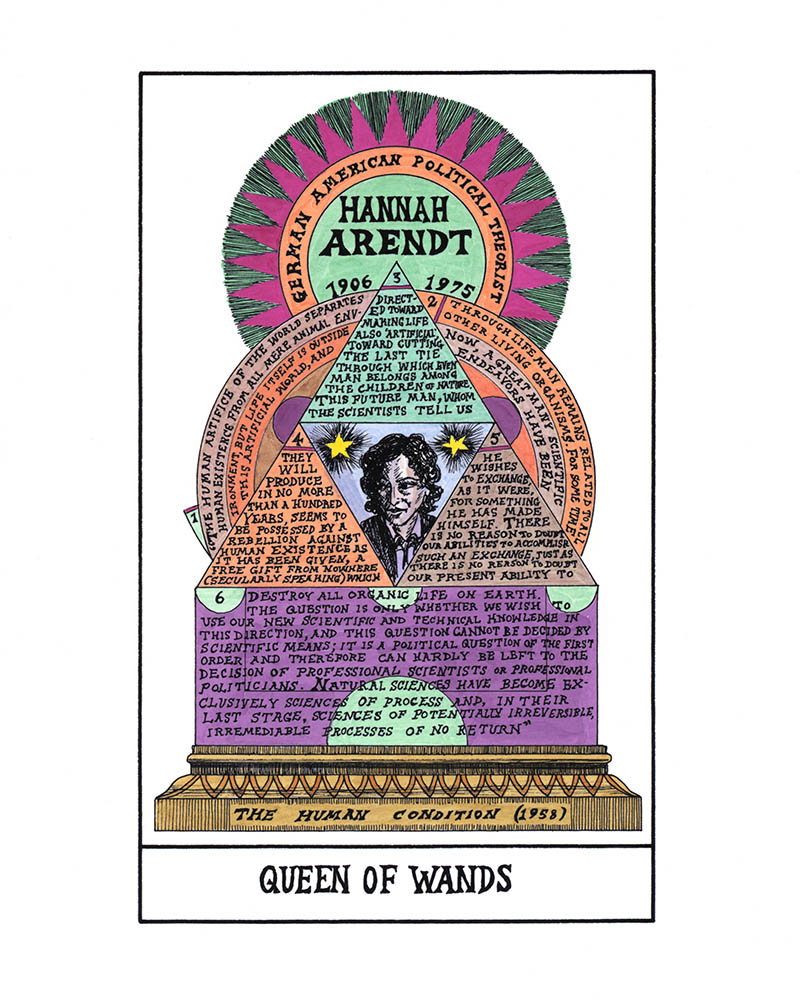
Suzanne Treister, HEXEN 2.0/Tarot/Queen of Wands – Hannah Arendt Medium: Archival giclée prints with watercolour on Hahnemuhle Bamboo paper, Dimensions: 29.7x 21 cm each, Date: 2009-2011 Courtesy the artist, Annely Juda Fine Art, London and P.P.O.W. Gallery, New York
ESH: What is your proposal? Do you correspondingly want to provide justice for the past, or is your approach merely more to help the present and future generations not be in the same situation?
PR: Intergenerational communities are key. Not only for the fact that cultural structures are an intergenerational problem but also because experience and knowledge can be a very empowering to a community. What Black Swan is trying to do is to create a multidisciplinary intergenerational community, with institutions, and blue chip galleries; it is not a binary process of us against them. It is about how we can work together to give opportunities to artistic practices that they can develop through the lens of the art worker, rather than with the lens of the establishment or market only.
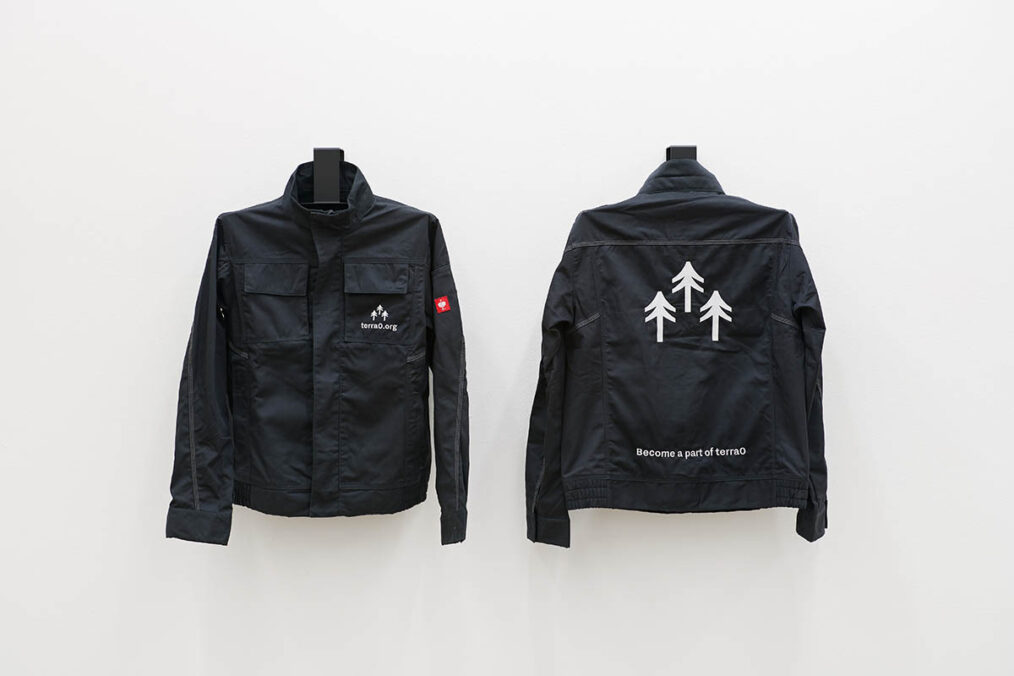
terra0 @ exhibition „Survival of the Fittest“ Kunstpalais Erlangen 29.02.-24.05.2020 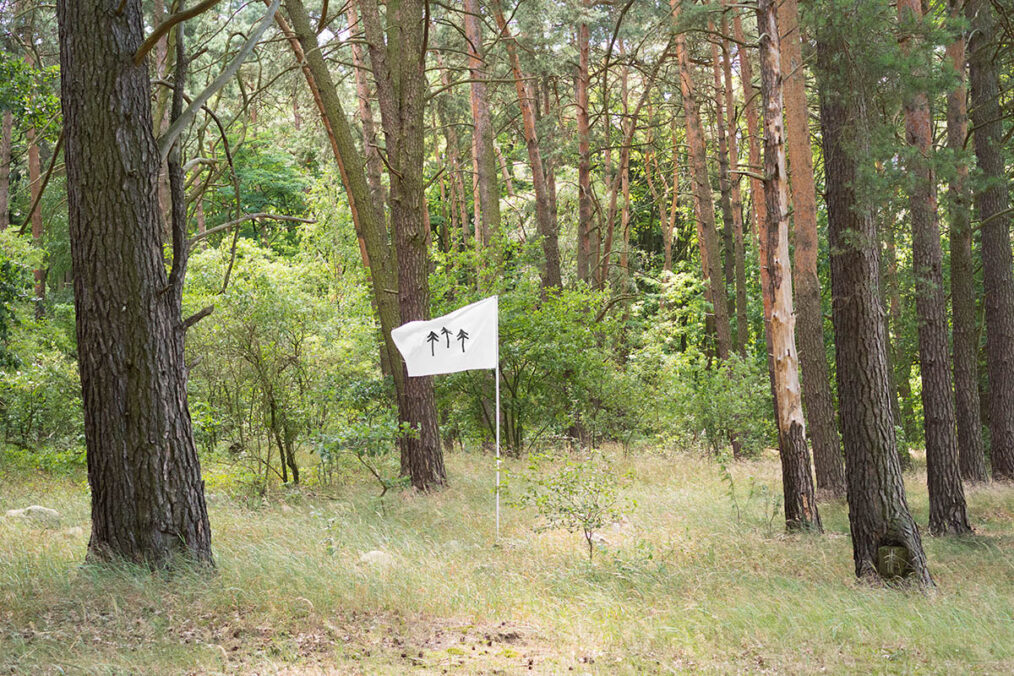
terra0 @ exhibition „Survival of the Fittest“ Kunstpalais Erlangen 29.02.-24.05.2020
ESH: At the Summit Radical Friends (2021) besides lectures, presentations of prototype models, voting processes, you had also organised activities connected with bodywork and music. Parallel to this, also in the Omsk Social Club, one senses a pleasant deceleration. Could it be that it has something to do with reminding us cultural workers that we are constantly moving with a fast-paced way of working?
PR: Of course, the accelerated mode in which we put our bodies when we work in arts and culture is an ongoing problem, especially because most workers, live in precarious, underpaid positions (…) and of course, physical and mental health often goes overlooked, but going back to more embodied practices, thinking through your corporal soul is also about offering a different pathway/ gateway into the conversation. Also, when we reproduce the models of academia or western governance, in lectures or panels we also unconsciously may reproduce the responses to questions and answers, almost like we are on autopilot; we become trained to respond in certain ways in certain environments.
And I think by a moment of interruption, kind of shaking the body and mind out, we offer embodied knowledge as part of our toolkit in order to approach the questions with a sort of fresh set of eyes. Simultaneously we, myself and Ruth Catlow believed that the Radical Friend Summit should be a moment of physical action in order to make a wave for radical care and also to offer space for both vulnerability and connectivity because I think when you are speaking about new modes of technology or culture, these are spaces can very often feel alienating to people who are new to the dialogues whereas everyone comes with a body… although is not as simple as that, as some bodies are more accepted as others, but we tried to create a point that everyone could enter in a horizontal modus. And from that, we would begin to unpack.
The work of Omsk Social Club is also very much related to the work I have been doing with Black Swan DAO, and Radical Friends, because Omsk Social Club is a practice, predominately a role-played, that takes on worlding with public participants that can last anywhere between 9 hours and the longest been 58 days. Omsk Social Club is just one new medium in the arts, but there are many and traditionally these types of practices are extremely hard to translate to the ongoing historical art market, in terms of relevance and support. What Black Swan DAO is doing is offering space where these practices could gain funding and also offer a space where institutions, galleries, can get in touch with these new practices. There has been a huge shift in the arts in the recent years, a lot of social and political work that has become part of practice, also because the new generation of artists are looking for intersectional, decolonial, antiracist, and theorist positions, but also because they are trying to survive as well.
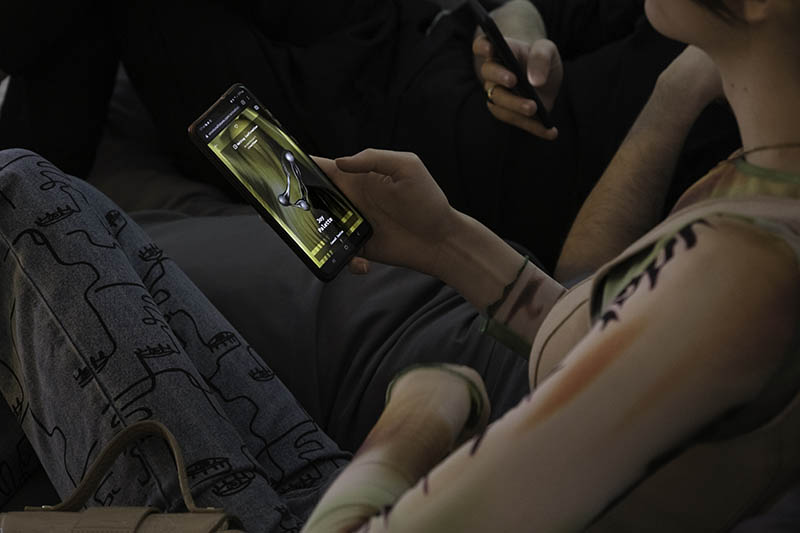
ESH: Are there other pivotal personalities who played a key role in further developing DAO?
PR: I mean it is a whole community (smiles), the book Radical Friends is just the tip of the iceberg, people who have been incremental in my journey would be Ben Vickers, who always offered with generosity inspired and different pathways to access. Ruth Catlow has been a very very strong inspiration and collaborator over the years through our research on DAOs. Laura Lotti is an amazing economist and writer researcher, that often brings me back into the world of the living, Curve Labs – have been incredible in noticing how code can be scripted and in the most poetic way how it can be useful, without Paul Seidler and Max Hampshire patience in the early days I would never have got this far in web 3 and there is so many more.
There is a very inspiring ecology of people who are working, re-tooling and fighting for an alternative Web 3.
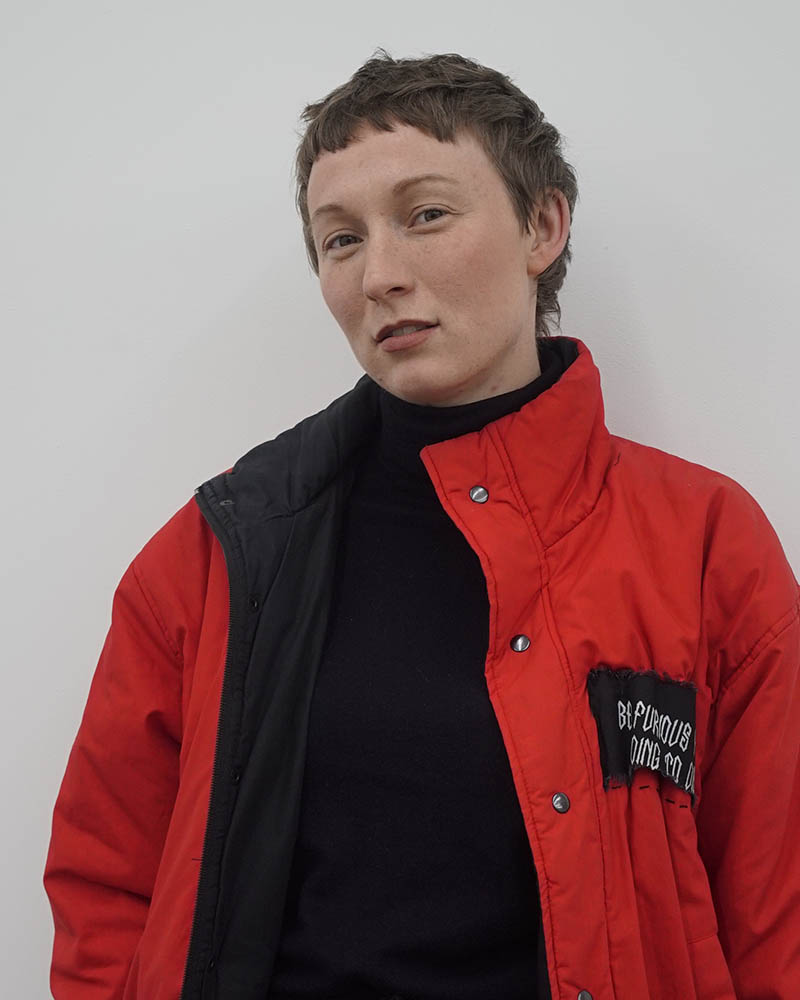
ESH: Can you reveal to us something about the focus of your kick-off talk on May 31st? What is the importance of formats such as Vienna Creative Days?
PR: There has been an incredible shift from the isolated theorist, philosopher towards a peer led community practice. That’s why these events are important and as far as the key note, I will be speaking the importance of worlding through decentralisation.
Penny Rafferty is an independent writer and theorist. Her work stands for a social, collaborative, and open-ended/unpredictable approach to technology and advocates for putting culture structures first. Against the backdrop of increasingly precarious working conditions, she has been applying the DAO (Decentral Autonomous Organization) idea to problems in the art world in Berlin since 2018. This led to the founding of Black Swan DAO,a proto-institution whose goal is to channel resources from established institutions to cultural workers and manage them collectively. While blockchain technology has been used primarily in the financial sector, the Black Swan DAO serves as a fascinating case study for the application of Web3 principles and technology to effect positive change in the cultural and creative sectors. In addition, Penny Rafferty is Co-Principle Investigator of the Serpentine Galleries Blockchain R&D Lab and co-leads the think tank series Artworld DAO’s and The Radical Friends Summit (2019-2022), developed in collaboration with the Serpentine Galleries, Furtherfield, Haus der Kunst Munich and Goethe Institut London, with Ruth Catlow and Ben Vickers. In 2022, she and Catlow published Radical Friends – Decentralised Autonomous Organisations and the Arts, combining five years of research into a toolkit for critical thinking and connectivity. In it, based on Web 3 thinking, they defy established systems of centralized control in the arts industry and other financial networks.
Creative Days Vienna will once again bring together international creative professionals for a two-day lecture and networking programme. Creative Days Vienna: We invited leading curators, researchers, artists and cultural experts to explore how technology is shaping the future of cultural experiences and sparking new opportunities in the process.“ The participants at Creative Days Vienna are breaking new ground in architecture, design, film, gaming, fashion, music and visual arts. Their work focuses on questions about the impact of current technological and social developments on the creative industries and the city. In a variety of talks, experiences and networking sessions we offer space for knowledge transfer, cooperation, and open discussion. A wide-ranging tour programme to Viennese cultural institutions, technology companies, and creative studios as well as curated matchmaking sessions round out the two-day programme. The two-day discourse and event will kick off with keynotes by Penny Rafferty and Tega Brain. Tega Brain is a digital artist and will talk about her research at the intersection of automated technologies like Artificial Intelligence (AI) and agency/self-determination. Berlin-based author and theorist Penny Rafferty will present her work on decentralised value creation processes in the cultural sector. This year’s Creative Days Vienna will also see the launch of Content Vienna, the competition for digital design with special prizes on the theme of “Digital Literacy”. www.wirtschaftsagentur.at/creativedaysvienna
Notes:
Participation in the Creative Days Vienna is free. You can register here.
Omsk Social Club with the immersive participatory installation T(( ))mb can be seen from 07.06.2023 – 29.07.2023 at Kunstraum Niederösterreich. Opening: 06.06.2023 www.kunstraum.net/de/ausstellungen




